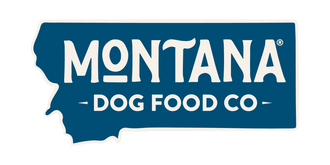
5 Winter Dangers for Dogs: What to Watch Out for as Temperatures Drop
As winter approaches, you’re probably thinking about cozy fires and warm blankets. But for your dog, this time of year brings new health hazards that can quickly turn a winter wonderland into a snowy nightmare. Here’s what you need to know to keep your dog safe as the seasons change—no snow boots required (unless they’re functional and necessary, of course).
1. Watch Out for Frostbite and Hypothermia
Just because your dog has a fur coat doesn’t mean they’re invincible against the cold. Small dogs, short-haired breeds, and seniors are especially vulnerable to the chilly weather. Frostbite and hypothermia can strike faster than you’d think when temperatures drop, especially on paws, ears, and tails.
Quick Tip: If it’s too cold for you without a jacket, it’s too cold for your dog too. Keep walks short, bundle up sensitive pups, and invest in a good dog coat if needed.
2. Salty Paws Are Painful Paws
Road salt and de-icers are sprinkled everywhere to keep sidewalks safe, but they can wreak havoc on your dog’s paws. These chemicals can cause irritation, cracking, and burns if they’re not washed off. Plus, if your dog licks them, it can lead to stomach upset or even poisoning.
Quick Tip: Wipe off your dog’s paws after walks, or try dog booties (yes, even if they protest). A little paw balm or coconut oil also helps to protect those precious pads.
3. Holiday Food Hazards
Winter means feasts and treats galore, which is awesome—unless your dog decides to sample the buffet. Many holiday foods are downright toxic to dogs, including chocolate, raisins, grapes, onions, and fatty leftovers like turkey skin. Even safe treats can cause upset stomachs if given in excess.
Quick Tip: Keep sugary human treats out of reach, and make sure guests know not to sneak any “just one little bite” to your dog. Have some safe dog treats on hand for those puppy-dog eyes!
4. Antifreeze: Sweet but Deadly
Antifreeze leaks are more common in winter and, unfortunately, dogs are often attracted to its sweet taste. But even a small lick of antifreeze can cause kidney failure and even death.
Quick Tip: Store antifreeze securely, clean up any spills immediately, and consider using pet-safe antifreeze. If you suspect your dog ingested antifreeze, call your vet or poison control immediately—time is critical.
5. Dangerous Decorations
Whether it’s holiday lights, tinsel, or poinsettias, many winter decorations can spell trouble for your dog. Tinsel and ornaments can be choking hazards, and some seasonal plants like poinsettias and mistletoe are toxic if ingested. And that beautiful string of lights? It looks a lot like a chew toy to some pups.
Quick Tip: Keep decor out of reach or in a dog-proof room. If your dog is particularly curious, try to dog-proof your decorations by choosing pet-safe plants and unbreakable ornaments.
In the colder months, being a little more vigilant can save your dog from a lot of trouble. Keep these tips in mind, and your winter will be filled with more snuggles and fewer trips to the vet. After all, a happy dog is the best kind of winter buddy! 🐾




